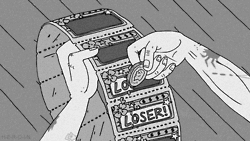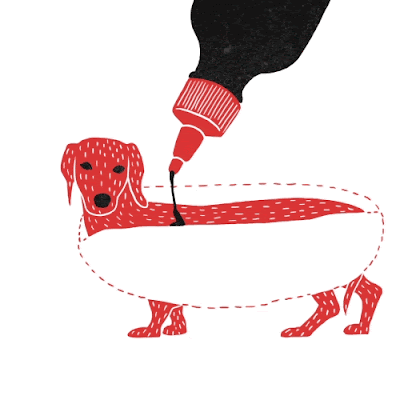13個職場絕不能說的英文!敢說I think...跟OK,你就慘了!13 Things You Should Never Say At Work !
教練在教托福之前,曾在外商公司上班超過十五年,很多外商是全英文環境,所以聽說讀寫都沒法子用中文,但是別以為英文流利就吃得開,因為講錯話,除了讓老外誤會不說,還可能丟工作。下面這十三種狀況,英文該怎麼講才對?教練把該說的字眼與句子特別放大給大家參考,連不該說的英文標題字也放大,好加深大家的印象。
記得了,說對話保證你職場一路順風,下面這幾招快點學起來啊!
13 Things You Should Never Say At Work
Here are 13 phrases that should be banned from the office:
From the Forbes Magazine
1.
“It’s not fair.”
敢這樣抱怨你皮在癢
“It’s not fair.”
敢這樣抱怨你皮在癢
She
got a raise, you didn’t. He was recognized, you weren’t. “Some people have food
to eat while others starve,” Price says. “Injustices happen on the job and in
the world every day. Whether it’s a troubling issue at work or a serious
problem for the planet, the point in avoiding this phrase is to be proactive
about the issues versus complaining, or worse, passively whining.” Instead, document
the facts, build a case, and present an intelligent argument to the person or
group who can help you.
2.
“That’s
not my problem,” “That’s not my job,” or “I don’t get paid enough for this.”
這是我的事嗎/這不該我負責吧/我領的薪水裡面有包含做這件事情嗎?
這是我的事嗎/這不該我負責吧/我領的薪水裡面有包含做這件事情嗎?
If
you asked someone for help, and the person replied with one of the above
phrases, how would you feel? “As importantly, what would it say about him or
her?” Price says. “Regardless of how inconvenient or inappropriate a request
may be, it is likely important to the other person or they would not have
asked. Therefore, as a contributing member of the team, a top priority is to
care about the success of others (or at least act as though you do).” An
unconcerned, detached and self-serving attitude quickly limits career
advancement.
“This
doesn’t mean you have to say yes; it does mean you need to be articulate and
thoughtful when saying no,” she adds. “For example, if your boss issues an
unreasonable request, rather than saying, ‘You’ve got to be kidding me. I don’t
get paid enough for this,’ instead say, ‘
請這樣說→I’ll be glad to help. Given my current tasks of A, B, and C, which one of these shall I place on hold while I work on this new assignment?’ This clearly communicates teamwork and helpfulness, while reminding your boss of your current work load and the need to set realistic expectations.”
請這樣說→I’ll be glad to help. Given my current tasks of A, B, and C, which one of these shall I place on hold while I work on this new assignment?’ This clearly communicates teamwork and helpfulness, while reminding your boss of your current work load and the need to set realistic expectations.”
3.
“I
think…” ←別這樣說
Which
of these two statements sounds more authoritative?: “I think our company might
be a good partner for you.” Or, “要說 I believe…” “I know…” or “I am confident that our
company will be a good partner for you.”
“There
is a slight difference in the wording, however the conviction communicated to
your customer is profound,” she says. “You may have noticed, the first phrase
contains two weak words, ‘think’ and ‘might.’ They risk making you sound unsure
or insecure about the message. Conversely, the second sentence is assertive and
certain. To convey a command of content and passion for your subject,
substitute the word ‘think’ with ‘believe’ and replace ‘might’ with ‘will.’”
4.
“No problem.”
人家謝謝你之後別這樣回答
人家謝謝你之後別這樣回答
When
someone thanks you, the courteous and polite reply is, “要說You’re welcome.” “The meaning implies that it was a pleasure for you to help the
person, and that you receive their appreciation,” Price says. “Though the
casual laid-back phrase, ‘no problem’ may intend to communicate this, it falls
short. It actually negates the person’s appreciation and implies the situation could have
been a problem under other circumstances.” In business and social situations,
if you want to be perceived as well-mannered and considerate, respond to thank
you’s with, “You’re welcome.”
5.
“I’ll
try.” ←這樣說代表你能力不足
“Imagine it’s April 15th and
you ask a friend to mail your tax returns before 5 pm on his way to the post
office,” Price says. “If he replies, ‘Okay, I’ll try,’ you’ll likely feel the
need to mail them yourself.” Why? Because that phrase implies the possibility of failure.
“In
your speech, especially with senior leaders, replace the word ‘try’ with the
word and intention of
‘請用這個字→will.’ This seemingly small change speaks volumes,” she adds.
‘請用這個字→will.’ This seemingly small change speaks volumes,” she adds.
6.
“He’s a
jerk,” or “She’s lazy,” or “My job stinks,” or “I hate this company.” ←道人長短自毀前程
Nothing
tanks a career faster than name-calling, Price says. “Not only does it reveal
juvenile school-yard immaturity, it’s language that is liable and fire-able.”
Avoid
making unkind, judgmental statements that will inevitably reflect poorly on
you. If you have a genuine complaint about someone or something, communicate
the issue with tact, consideration and neutrality.
7.
“But
we’ve always done it that way.” 因循苟且別想混了
“The most effective leaders value innovation, creative thinking
and problem solving skills in their employees,” Price says. In one fell swoop,
this phrase reveals you are the opposite: stuck in the past, inflexible, and
closed-minded. “Instead say, ‘要這樣說Wow,
that’s an interesting idea. How would that work?’ Or, ‘That’s a different approach. Let’s discuss
the pros and cons.’”
8.
“That’s
impossible” or “There’s nothing I can do.”
失敗者似的發言惹人厭
失敗者似的發言惹人厭
Really? Are
you sure you’ve considered every single possible solution and the list is now
exhausted? “When you make the mistake of saying these negative phrases, your
words convey a pessimistic, passive, even hopeless outlook,” Price says. “This
approach is seldom valued in the workplace. Employers notice, recognize and
promote a can-do attitude. Despite the glum circumstances, communicate through your
words what you can contribute to
the situation.”
Instead,
try something like, “要這樣講才對→I’ll
be glad to check on it again,” “Let’s discuss what’s possible under these circumstances,” or, “What I can do is this.”
9.
9.
“You
should have…” or “You could have…”
怪罪別人只會凸顯自己不足
怪罪別人只會凸顯自己不足
You
probably wouldn’t be thrilled if someone said: “You should have told me about
this sooner!” Or, “You could have tried a little harder.” “Chances are, these
fault-finding words inflict feelings of blame and finger-pointing,” Price says.
“Ideally, the workplace fosters equality, collaboration and teamwork.
Instead of making someone feel guilty (even if they are), take a more
productive non-judgmental approach.” Say, “這樣說妥當啦→Next time, to ensure proper planning, please bring this to my
attention immediately.” Or, “In the future, I recommend…”
10.
“You
guys.”請問我跟你很熟嗎?
Reserve
the phrase “you guys” for friendly casual conversations and avoid using it in
business. “Referring to a group of people as ‘you guys’ is not only inaccurate
if women are present, it is slang and lowers your level of professionalism,”
Price explains. With fellow professionals such as your boss, co-workers and
clients, substitute “you guys” with terms such as “這樣講才得體→your organization” or “your team”
or simply “you.”
11.
“I may be
wrong, but…” or “This may be a silly idea, but…”
這樣講給人超弱的感覺
這樣講給人超弱的感覺
These
phrases are known as discounting, Price explains. They diminish the impact of
what follows and reduce your credibility. “Remember that your spoken words
reveal to the world how much value you place on yourself and your message. For
this reason, eliminate any prefacing phrase that demeans the importance of who
you are or lessens the significance of what you contribute.”
Don’t
say, “This may be a silly idea, but I was thinking that maybe we might conduct
the quarterly meeting online instead, okay?” Instead, assert your
recommendation: “可以這樣說 →to reduce travel costs and increase time efficiency, I recommend we conduct the
quarterly meeting online.”
12.
“Don’t
you think?” or “Okay?”
沒有主見的人才會這樣問
沒有主見的人才會這樣問
These
phrases are commonly known as hedging—seeking validation through the use of
overly cautious or non-committal words, she says. “If you truly are seeking
approval or looking for validation, these phrases may well apply. However, if
your goal is to communicate a confident commanding message and persuade people
to see it your way, instead of hedging make your statement or recommendation
with certainty.”
Imagine
an investment banker saying, “This is a good way to invest your money, don’t
you think? I’ll proceed, if that’s okay with you.” Instead, you’d probably want
to hear something like: “專業的說法是→This
strategy is a wise investment that provides long-term benefits. With your
approval, I’ll wire the money by 5 pm today.”
13.
“I don’t have time for this right now,” or “I’m
too busy.”
沒肩膀又怕事的態度老闆最不愛
沒肩膀又怕事的態度老闆最不愛
“Even
if these statements are true, no one wants to feel less important than
something or someone else,” Price says. To foster positive relations and convey
empathy, say instead: 要這樣講→I’d be happy to discuss this with you after my morning
meetings. May I stop by your office around 1 pm?”
These
are common phrases that might be difficult to eliminate completely from your
everyday conversations—but the trick is to gain awareness of the language
you’re using. “As is often the case with bad habits, we are unconscious of the
fact we’re saying career-limiting words and phrases,” Price says.












留言
張貼留言